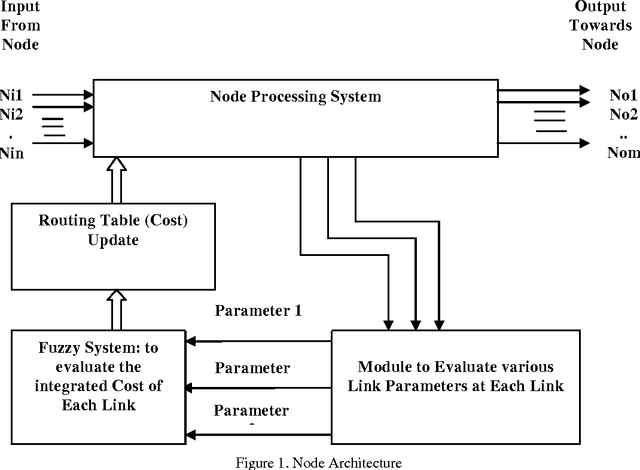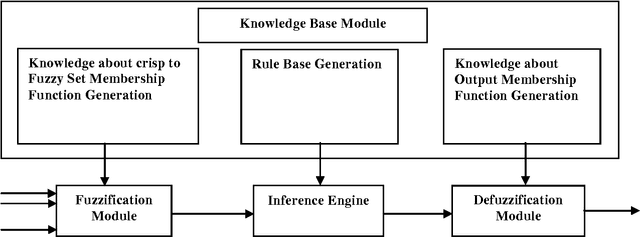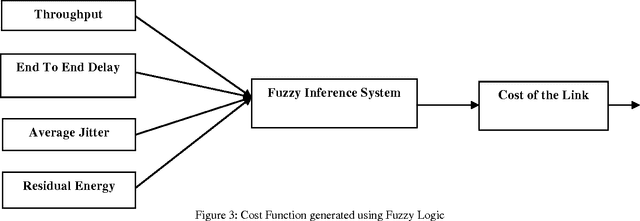Soft Computing Framework for Routing in Wireless Mesh Networks: An Integrated Cost Function Approach
Paper and Code
Jul 11, 2013



Dynamic behaviour of a WMN imposes stringent constraints on the routing policy of the network. In the shortest path based routing the shortest paths needs to be evaluated within a given time frame allowed by the WMN dynamics. The exact reasoning based shortest path evaluation methods usually fail to meet this rigid requirement. Thus, requiring some soft computing based approaches which can replace "best for sure" solutions with "good enough" solutions. This paper proposes a framework for optimal routing in the WMNs; where we investigate the suitability of Big Bang-Big Crunch (BB-BC), a soft computing based approach to evaluate shortest/near-shortest path. In order to make routing optimal we first propose to replace distance between the adjacent nodes with an integrated cost measure that takes into account throughput, delay, jitter and residual energy of a node. A fuzzy logic based inference mechanism evaluates this cost measure at each node. Using this distance measure we apply BB-BC optimization algorithm to evaluate shortest/near shortest path to update the routing tables periodically as dictated by network requirements. A large number of simulations were conducted and it has been observed that BB-BC algorithm appears to be a high potential candidate suitable for routing in WMNs.
 Add to Chrome
Add to Chrome Add to Firefox
Add to Firefox Add to Edge
Add to Edge